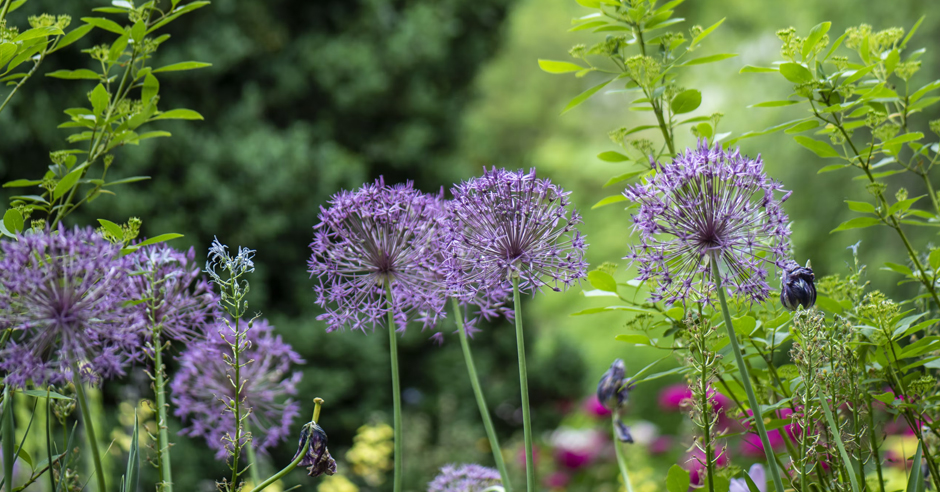Love Is a Skill
German Buddhist nun Ayya Khema teaches how to bring the heart and mind together through lovingkindness meditation. The post Love Is a Skill appeared first on Tricycle: The Buddhist Review.

German Buddhist nun Ayya Khema teaches how to bring the heart and mind together through lovingkindness meditation.
By Ayya Khema Jan 07, 2024 Photo by Guillaume Lorain | https://tricy.cl/2UUUIap
Photo by Guillaume Lorain | https://tricy.cl/2UUUIapLovingkindness (Pali, metta) can never exist unless it flows from the heart. As long as it’s just embedded in a word it is nothing; it is worthless. It doesn’t mean anything on its own in the same way that the word “river” is only a description that one has to experience in order to know it. If you say to a small child, river, they won’t know what you are talking about. But if you put the child’s hand in the water and let them feel the flow, then the child knows what a river is, whether they are familiar with the word or not.
The same goes for lovingkindness. The word is meaningless. Only when you feel it flowing from your own heart will you get an idea what the Buddha talked about in so many discourses. Life cannot be lived fully unless it’s lived with both heart and mind. If you live with your heart only, one is prone to emotionalism. Emotionalism means reacting to everything, and that doesn’t work. The mind has its rightful place. One has also to understand what is happening. Yet if one only understands well, one may be intellectually advanced, but the heart is not engaged. Both must go hand in hand—heart and mind together. One has to understand, and one has to use one’s emotions positively, emotions that are fulfilling and bring a feeling of peacefulness and harmony to one’s own heart.
Lovingkindness or love—whichever word has meaning for you—is not an emotion resulting from the presence of a lovable person, or because you are with your family or children, or because somebody is worthy of love. That utilitarian and instinctive reaction has nothing to do with this kind of love. Practically everybody can react in that way. It’s not very difficult to love one’s own children. Most people manage. It is also not terribly difficult to love one’s own parents. Some people can’t even do that, though most people manage. But that’s not the meaning of metta or lovingkindness.
Related: Real Love
When the Buddha talks about lovingkindness, he is talking about a quality of the heart that makes no distinction among any living being. The highest aspiration mentioned in the lovingkindness discourse is that you should love all beings just as a mother loves her only child. Those of you with children know the feeling you have for your children and can tell the difference. How do you feel about your own children and how do you feel about other people? That is the work one has to do. Unless one is willing to purify oneself until all beings are considered as though one’s own children, one hasn’t understood lovingkindness and its importance.
If you see a small child who has fallen off a bicycle and is crying, it will be natural to pick it up and console it. That’s lovingkindness, but not very difficult. The difficulty lies in generating that feeling in one’s heart toward all people, most of whom are not terribly lovable.
The heart needs training because by nature it isn’t constituted to always feel lovingkindness. By nature it contains both love and hate. It contains ill will, rejection, resentment and fear, and also love. But unless we diminish the hate and enlarge the love by doing something about it in our daily life, we have no chance of experiencing that peaceful feeling that lovingkindness generates in the heart.
It’s a skill. It’s not an inbred character fault or ability. It’s a skill to change oneself again and again until all impurities have been cleansed. It’s not because other people are so lovable. They’re not.
Lovingkindness can be cultivated in the heart with great benefit to ourselves. But the ultimate destination is egolessness, because the more lovingkindness there is in the heart, the less ego. The more the ego diminishes, the more love can come from the heart. When other people are taken into the heart, the self has to step aside to make room. Others are benefiting by that as a matter of course, but that is a secondary consideration. The only person we can lead to liberation is ourself. Everybody has to go alone. Anybody who would like to come along is welcome. The bandwagon is big, and there aren’t enough people on it yet.
Lovingkindness practice:
Please put the attention on the breath for just a moment to become centered. Take a look into your heart and see whether there is any worry, fear, grief, dislike, resentment, rejection, uneasiness, anxiety. If you find any of those, let them float away like the black clouds that they are… Then let warmth and friendship arise in your heart for yourself, realizing that you have to be your own best friend. Surround yourself with loving thoughts for yourself and a feeling of contentment within you… Now surround the person nearest to you in the room with loving thoughts and fill that person with peace and wish for that person’s happiness… Now surround everyone here with loving thoughts… Let the feeling of peacefulness extend to everyone here, and think of yourself as everyone’s good friend… Think of your parents, whether they are still alive or not. Surround them with love. Fill them with peace and gratitude for what they have done for you, be their good friend… Think of those people who are nearest and dearest to you. Embrace them with love, fill them with peace as a gift from you, without expecting them to return it to you… Think of your friends. Open up your heart to them, to show them your friendship, your concern, your love, giving it to them without expecting anything in return… Think of your neighbors who live near you, the people you meet at work, on the street, in the shops, make them all your friends; let them enter into your heart without any reservation. Show them love… Think of anyone for whom you have dislike or with whom you may have had an argument, who has made difficulties for you, whom you do not consider your friend. Think of that person with gratitude, as your teacher, teaching you about your own reactions. Let your heart go out to that person because he or she too has difficulties. Forgive and forget. Make him or her your friend… Think of all those people whose lives are far more difficult than ours, who may be sick, in hospital, who may be in prison, in an orphanage or in war-torn countries, hungry, crippled, blind, without friends or shelter, never able to hear the dhamma. Open up your heart to all of them. Make them all your friends, show them love, wish them happiness… Put your attention back on yourself. Feel contentment arising in you from making right effort, happiness that comes from loving and joy that comes from giving. Become aware of these feelings, experience the warmth they create in and around you… May all beings be happy.♦
From Being Nobody, Going Nowhere: Meditations on the Buddhist Path by Ayya Khema © 1987. Reprinted with permission of Wisdom Publications.
This article was originally published on March 25, 2019.
![]()
Thank you for subscribing to Tricycle! As a nonprofit, we depend on readers like you to keep Buddhist teachings and practices widely available.
This article is only for Subscribers!
Subscribe now to read this article and get immediate access to everything else.
Already a subscriber? Log in.

 Troov
Troov 
































